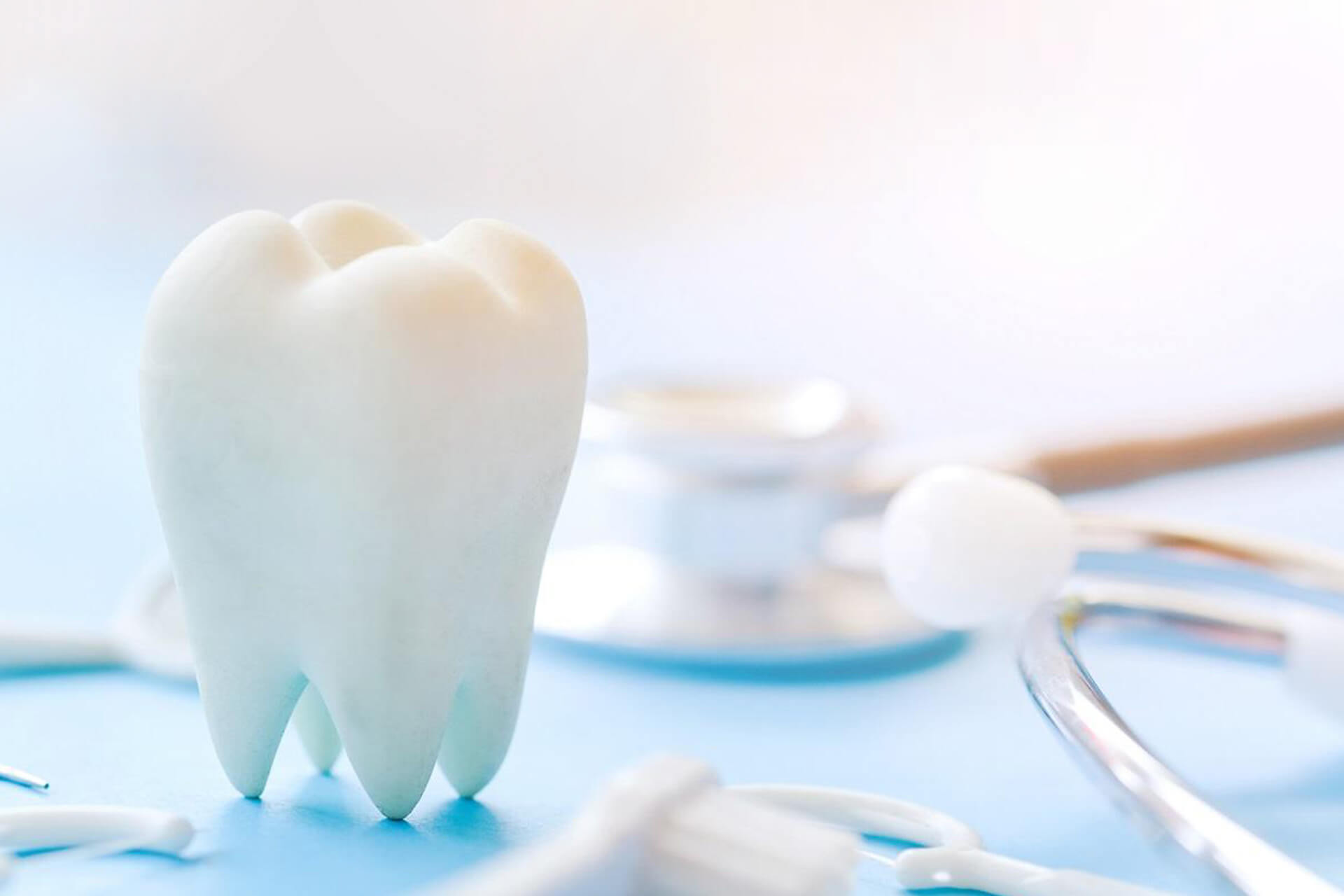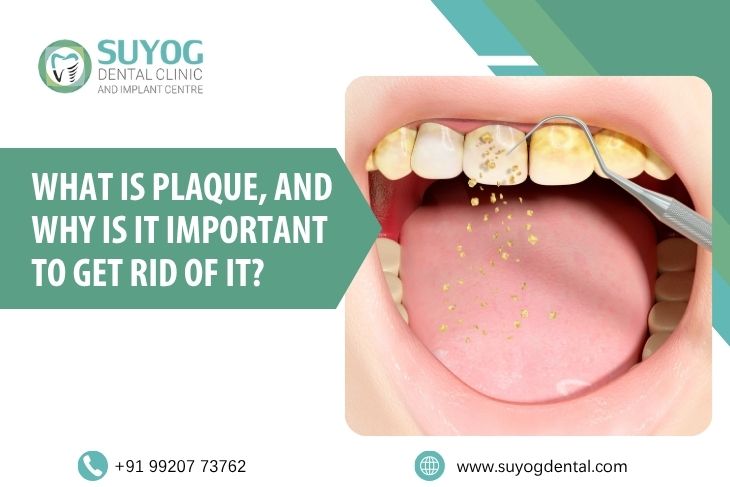
What Is Plaque, And Why Is It Important To Get Rid Of It?
At Suyog Dental Clinic in Mahim, we meet people every week who say something like, "Doctor, my teeth look fine… I don't think I need cleaning just yet." But when we take a closer look, we often find a sticky, colorless (sometimes pale yellow) film clinging stubbornly to their teeth. That culprit is dental plaque — and if left unchecked, it can quietly harm your teeth and gums before you even realize something's wrong.

If you’re considering investing in your oral health, understanding the teeth cleaning cost in Mahim can help you plan regular visits without any surprises. So let's talk about what plaque is, why it forms, and why removing it regularly is essential if you want to keep your smile healthy for decades.
What Exactly Is Plaque?
Plaque isn't just "stuff stuck on your teeth after eating." It's a soft, sticky layer of bacteria that forms on your teeth every single day. These bacteria live naturally in your mouth — they're part of your oral ecosystem — but when they mix with food particles and saliva, they create plaque. This film clings tightly to your teeth, especially along the gumline and between teeth where your toothbrush might not reach as easily. At first, plaque is soft and can be removed with good brushing and flossing. But if you miss spots or skip cleaning, plaque starts to harden within 24–72 hours. Once hardened, it turns into tartar (calculus) — and tartar can only be removed by a dental professional.
Why Is Plaque a Problem?
- Plaque Feeds on Sugars – Bacteria in plaque feed on carbohydrates and sweets, producing acids that attack enamel and cause cavities.
- Plaque Irritates Your Gums – Causes redness, swelling, or bleeding, early signs of gum disease.
- Plaque Causes Bad Breath – Releases unpleasant-smelling compounds, persisting even after brushing.
- Plaque Can Lead to Serious Dental Problems – Can progress from gingivitis to periodontitis, damaging supporting bone and tissue.
The Plaque Timeline
- Day 1: Plaque starts forming after you eat.
- Day 2–3: Plaque thickens and irritates gums.
- Day 3–7: Plaque begins to harden into tartar.
- Weeks to Months: Inflammation worsens, gum recession may start.
- Years: Untreated plaque leads to advanced gum disease, tooth loosening, and tooth loss.
Plaque Doesn't Discriminate
Plaque can appear in people who brush once or twice daily but neglect flossing. It hides between teeth, behind back molars, and along the gumline. Professional cleaning is essential to remove hardened tartar that home care can't.
At Suyog Dental Clinic — How We Remove Plaque and Tartar
- Oral Check-up – Examine teeth and gums to identify problem areas.
- Scaling – Ultrasonic instruments remove tartar without harming enamel.
- Polishing – Smooths teeth surfaces to prevent plaque from sticking.
- Fluoride Application – Extra protection for patients prone to cavities.
Why Delay Can Cost You More
Delaying a cleaning may save money now but can lead to expensive treatments later. Regular cleaning prevents cavities, gum disease, deep cleaning, extractions, and teeth replacement — prevention is always more cost-effective.
Everyday Habits That Help Keep Plaque Away
- Brush Twice Daily – Spend 2 minutes, reaching all surfaces with a soft-bristle brush and fluoride toothpaste.
- Floss Daily – Removes plaque between teeth where toothbrush can’t reach.
- Rinse With Mouthwash – Reduces plaque-causing bacteria.
- Limit Sugary Foods and Drinks – Prevents bacterial acid production.
- Stay Hydrated – Water washes away food particles and maintains saliva.
Myth: If My Teeth Look Fine, I Don't Have Plaque
Plaque may be invisible in early stages, causing gum irritation without being seen. Professional check-ups are essential even if teeth look fine.
What Our Patients Say
Many patients are surprised by the amount of tartar removed and the fresh, smooth feeling after cleaning.
How Often Should You Get Your Teeth Cleaned?
For most people, every 6 months. High-risk individuals may need cleanings every 3–4 months. Our team will recommend a schedule based on your oral health.
Frequently Asked Questions
- How much does teeth cleaning cost in Mahim? – Costs vary by clinic, type of cleaning, and condition. Basic cleanings are affordable, while heavy tartar or gum disease may need deeper cleaning.
- Is professional teeth cleaning painful? – Advanced ultrasonic scalers remove plaque comfortably. Mild scraping sensations may occur; numbing gels are used if needed.
- How often should I get my teeth cleaned if I have plaque buildup? – Usually every six months, but heavy tartar, gum issues, or smoking may require visits every 3–4 months.
At Suyog Dental Clinic in Mahim, we make plaque removal comfortable, effective, and affordable. Understanding teeth cleaning cost in Mahim helps you invest in preventive care and maintain a healthy smile for years.



